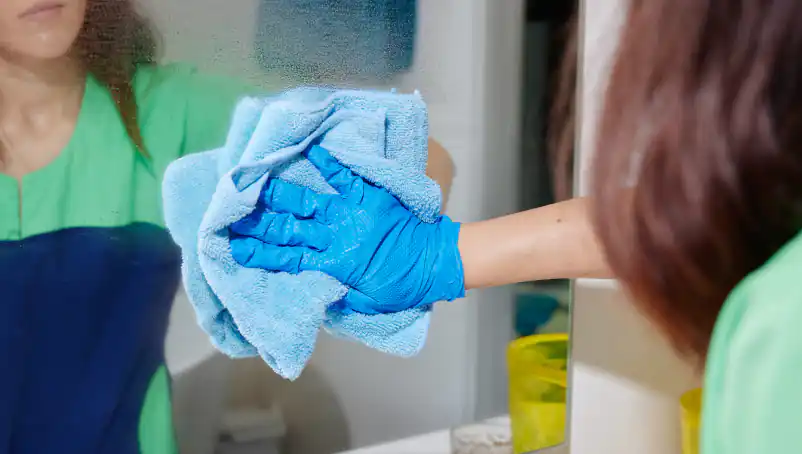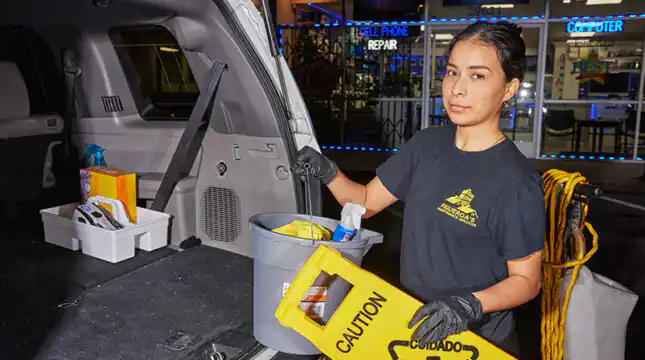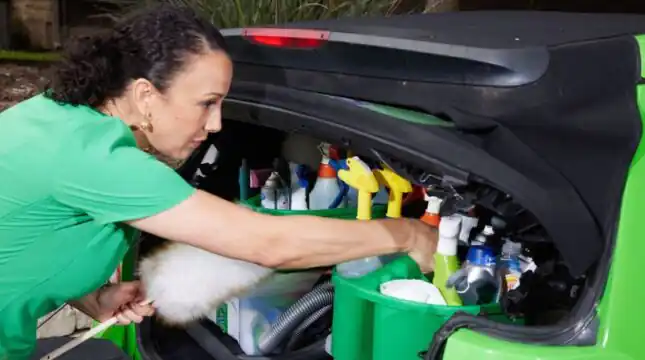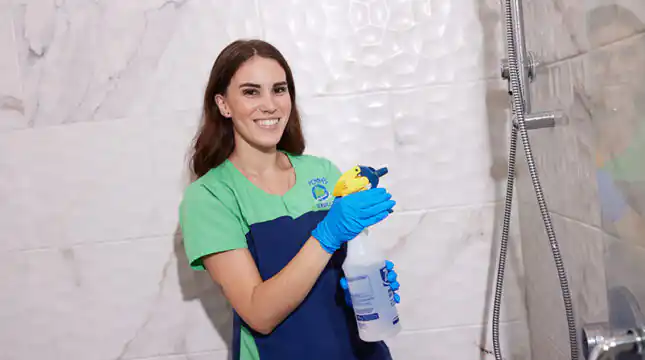How to start a cleaning business in Georgia
From registering your business name to understanding local regulations, each step is important. This is what’s necessary to get your cleaning business off the ground.
1. Register your business with the state
In Georgia, the process of registering your business with the state varies based on your business structure. If you’re operating as a limited liability company (LLC), limited partnership (LP) or corporation, it’s a legal requirement to register with the Georgia Secretary of State.
You can complete this registration online, by mail or in person. The filing fee is $110 for online registrations or via mail.
However, if you’re a sole proprietor, there’s no need for state registration.
2. File a ‘doing business as’ (DBA) if needed
If you’re a sole proprietor and want to operate your business under a name other than your legal name, you must file a fictitious business statement, also known as a DBA form, with the clerk of the superior court in the county where your business is located.
This also applies to partnerships, corporations and limited liability companies that operate under a different name than the entity’s legal name. The cost to file a DBA in Georgia may vary by county.
3. Get an Employer Identification Number (EIN)
If you’re starting a business with partners, forming a corporation or hiring employees, you’ll need an EIN for tax purposes. It’s also needed to open a business bank account, get business credit cards or apply for a business loan.
Even if you’re a sole proprietor or the only member of a limited liability company (LLC), having an EIN is useful for your business entity. It helps keep your personal and business finances separate and shows that you’re serious about your business.
Getting an EIN is easy and free. You can apply online or fill out form SS-4 and send it to the IRS by fax or mail.
4. Apply for a business license
Georgia residential and commercial cleaning businesses must apply for a business license at their city or county clerk’s office. While there’s no specific license required to clean houses in Georgia, depending on the particular services you offer and the city or county where you operate, you may need to obtain additional licenses.
5. Obtain a sales tax permit if needed
In GA, sales tax is typically imposed on the “transfer of tangible personal property.” If your cleaning service doesn’t involve selling products, you generally don’t need to collect sales taxes. The supplies you use for cleaning homes don’t count as a “transfer” of tangible personal property. Check with the Department of Revenue for commercial services to be sure.
While you must pay sales tax on these supplies when you purchase them, they’re not taxable to your customers. However, checking with the Georgia Department of Revenue or a tax professional is always a good idea to ensure you’re meeting all your tax obligations.
Insurance requirements for Georgia cleaning businesses
Adequate Georgia business insurance can help protect your cleaning business and help show clients that you’re more conscientious and professional than your competition.
Some of the most common types of coverages common to cleaning businesses include:
General Liability insurance
General liability coverage in Georgia can help protect against some of the most common business risks and accidents. This liability policy can help shield your business from losses associated with non-employees suffering bodily injury at your business (such as a slip-and-fall injury).
It can also be helpful if you or your employees accidentally cause property damage to someone else’s property — and you’re on the hook to repair or replace it.
Learn more about general liability for cleaning businesses.
Workers’ Compensation insurance
If you own a cleaning company in Georgia that has three or more employees, your business is required to carry a workers’ comp policy. This policy can help your business cover medical expenses and wage replacement for employees who get ill or suffer an injury on the job.
Learn more about workers’ comp for cleaning businesses.
Commercial Property insurance
Commercial property coverage can help protect the physical assets you need to do your job, such as a storefront or storage facility, plus equipment and inventory. It can help safeguard your business property against various risks, such as fire or theft.
BOP insurance (Business Owner’s Policy)
A business owner’s policy, also called a BOP insurance policy, combines general liability and commercial property insurance coverage into a single, often cost-efficient and convenient package.
A BOP can carry more protection than a single policy. It can help cover damage that you or your employees may inadvertently cause to another person’s property, as well as bodily injury accidents that injure passersby on a slippery floor.
BOP keeps going to help protect your business inventory in the event of vandalism or other covered events.
Tools & Equipment insurance
If all the cleaning supplies you bought for your work — vacuums, window washers, cleaning products, etc. — were to vanish, would you have the funds to replace them all at once?
If your owned or borrowed equipment gets stolen, lost or damaged, this coverage could help you get you back to work fast and help with replacement or repairs — in your vehicle, in storage or at a job site.
Tools and equipment coverage is an add-on to general liability insurance for contractors and cleaning businesses.
Local city and county GA cleaning business license requirements
Once you’ve met state requirements, check your local county and city business regulations. In major cities like Atlanta or Augusta, regulations can be more stringent. Research the requirements in all areas where your business will operate, and not just where your home office is located.
Residential cleaning services in GA often don’t need a license and face few local restrictions. However, commercial cleaning services, especially those dealing with hazardous waste, may need additional permits, so check with local authorities.
Atlanta cleaning services license requirements
If you’re launching a cleaning business in Atlanta, you will need to apply for a Occupational Tax Certificate (the primary business license) through the City of Atlanta’s Office of Revenue. You may need to give them information about your business, such as the type of business, location, ownership details and any necessary permits or certifications. You’ll also need to provide:
- Notarized E-Verify affidavit
- Notarized SAVE affidavit
- Copy of applicant’s government issued photo ID
- Regulatory permits
The cost of this license varies based on a percentage of your gross revenue, calculated based on a variable rate.
Depending on the nature of your business, you may also need to comply with additional regulations and obtain permits from other city departments, such as the Department of Planning and Community Development or the Department of Public Works.
Augusta cleaning services license requirements
The Augusta-Richmond County Licensing and Inspections Department handles the business license process. To get your license, fill out an application form, share details about your business, and pay the necessary fees. Depending on your business type, Augusta may require additional documentation.
Columbus cleaning services license requirements
Starting a cleaning business in Columbus? You’ll need a general business license. Business licenses are not transferable. If you are located in Columbus or Muscogee County, you must get a Certificate of Occupancy from the Department of Inspections and Code.






